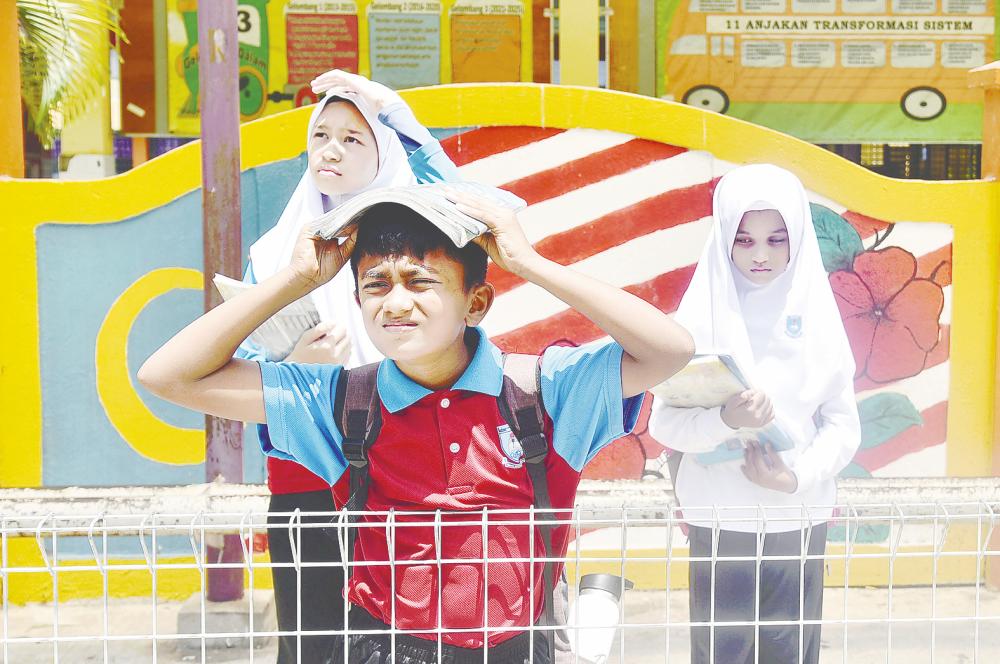PETALING JAYA: Dermatologists have warned the public to beware of ultraviolet (UV) radiation, which is a constant threat regardless of weather conditions.
Central Dermatology Specialist Clinic consultant dermatologist Dr Teeba Raja said up to 80% of UV rays can penetrate clouds, including ultraviolet A (UVA), which causes skin ageing and pigmentation, and ultraviolet B (UVB), which causes sunburn.
“A phenomenon known as ‘cloud scattering’ allows UV rays to diffuse and reach the ground, even when the sun is not visible.
“Malaysia’s tropical climate sees consistently high UV levels throughout the year, including during overcast and rainy days. While heavy rain might temporarily block some UV rays, they usually clear up quickly.”
Teeba stressed that applying sunscreen to the skin is important even during rainy days as one is not shielded from UV damage, and protecting one’s skin from such rays is a
year-round commitment.
Not using sunscreen during cloudy days or rainy weather can still result in sunburn, irritation and uneven skin tone. Over time, the cumulative effects of UV exposure can cause premature ageing, with wrinkles, loss of skin elasticity and persistent skin pigmentation.
“Cumulative UV damage is irreversible. It accelerates collagen breakdown and causes DNA mutations in skin cells, leading to skin cancers such as basal cell carcinoma, squamous cell carcinoma and melanoma.”
Teeba said the high humidity of the rainy season further complicates sunscreen application because it feels heavy or greasy, leading people to avoid using enough of it. Sweat and water exposure also washes it off, reducing its effectiveness.
She recommended using lightweight, water-resistant sunscreens that are better suited for the local climate.
Teeba advised choosing a broad spectrum sunscreen with a sun protection factor of 30 or higher to protect against UVA and UVB rays. For sensitive skin, mineral sunscreens containing zinc oxide or titanium dioxide are a good option, while a gel-based formula is ideal for oily or acne-prone skin.
“Sunscreen should be reapplied every two hours if you’re outdoors, regardless of the weather. After heavy sweating or rain, it’s essential to reapply it immediately to maintain protection.”
Her colleague and consultant dermatologist Dr Meera Kuppusamy also expressed concern over blue light exposure from digital screens, especially during the rainy season when people usually remain indoors.
“While artificial lighting and blue light from screens have a less significant impact compared with UV rays, it can still penetrate deeper layers of the skin and cause oxidative stress. This might lead to hyperpigmentation and inflammation over time.”
Meera recommends sunscreens containing iron oxide or antioxidants for those exposed to prolonged screen time. However, sunscreen may be unnecessary for short-term indoor exposure to blue light.
She also addressed the ecological implications of sunscreen use during the rainy season, with many products washing off into the environment.
“Mineral-based sunscreens which contain zinc oxide or titanium dioxide are safer for the ecosystem. Products labelled ‘reef-safe’ or ‘environmentally friendly’ should be prioritised.”
For individuals with eczema or rosacea, Meera advised opting for fragrance-free, non-irritating formulas.
“Those with sensitive skin should use thick, emollient-rich moisturisers to restore the skin barrier and choose sunscreens specifically designed for sensitive skin, that are free of alcohol or synthetic fragrances.”
Children, whose skin are more delicate, also require sun protection during the rainy season.
“Mineral-based sunscreens with zinc oxide or titanium dioxide are gentle and effective for young skin. Parents should ensure a generous application to all exposed areas and reapply every two hours or after water exposure, even on cloudy days,” she added.
Meera said for our humid weather, gel-based or lightweight formulations are preferable, as they are less greasy and more breathable.









